#doctor who ghost stories
Explore tagged Tumblr posts
Text
You can read my review of these here.
#2024 rewind#comics I read#the twelfth doctor adventures#doctor who ghost stories#the sandman#saga#red hood and the outlaws#iyanu child of wonder#the somewhat incredible jackie-boy man#void silver
0 notes
Text









Doctor & Clara Oswald + Daphne du Maurier, My Cousin Rachel, 1951 // Avina St. Graves, Skin of a Sinner // The Great (2020-2023)
#doctor who#twelfth doctor#clara oswald#whouffaldi#twelveclara#otp: the control freak and the man who could never be controlled#otp: this isn’t a ghost story#otp: it’s a love story
149 notes
·
View notes
Text
Me, to my new date: doctor who thinks it's a sci-fi story because the Doctor thinks it's a sci-fi story and because the companions think it's a sci-fi story, but it's really just a story about ghosts. a story about an ancient creature carrying the ghosts of everyone they have ever loved, meeting new people, and seeing them only as future ghosts. they are haunted by the future and the past and the present because they are the only constant in a world constantly in flux, and they are running as fast as they can to things before they burn and fade to dust but everything will always end, you understand, because this is the only thing the Doctor understands and yet they keep going. they love too much to stop. doctor who is not science-fiction, it's horror and optimism and spiritual more than anything else, it's religious unto itself, the TARDIS is a haunted house and a church and a graveyard and a hospital and the Doctor is the most haunted being in the universe but more than anything, this is a love story, because how can you love something without being haunted by it- hey, what are you doing?
My date, shoving breadsticks in their purse: I have to go-
#more unhinged doctor who meta#doctor who#meta#*into a bullhorn* IT'S A GHOST STORY#ninth doctor#tenth doctor#eleventh doctor#doctor who meta#twelfth doctor#thirteenth doctor#it's abt the time war & dalek & the parting of the ways & doomsday & the last of the time lords & journey's end & angels take manhattan#it's about hell bent and death in heaven and the doctor falls and it takes you away and the woman who fell to earth#it's about the montage of all of the people the doctor has let down#it's about astrid peth and amy pond and rory williams and rose tyler and bill potts and clara oswald and grace o'brien#it's about gaps in memory and memories that live too long to ever heal#the doctor is a haunted house#it's a show about cycles by its very structure#the moment that regeneration became a mechanic for the writers to use and companions began to move out the doctor was DOOMED#but what makes them fascinating is that they see themselves as doomed and blessed at the same time#because they will never ever stop running#clara oswald#amy pond#rose tyler#bill potts#the ghosts are INEVITABLE
570 notes
·
View notes
Text



Clone File: Morbs (YukiPri OC)
Basic info:
Name: Morbs Number Designation: CC-4413 Generation: 1 (0.9) Rank/Title: Chief Mortician of the GAR, Kamino Chief Mortuary Trainer (former) GAR Affiliation: Entire GAR, primarily stationed with the 212th Attack Battalion Character status: YukiPri Original Character
Disclaimer: Morbs' story will likely make more sense if you've read The Prime Override, as he's introduced with context in this fic. He will also make more sense if you've read about the other 2 clone medics mentioned in this file, Ashe and Stabber.
Backstory beneath cut!
Overview:
Clone morticians are specialists even among medics. Every clone medic knows the basics of how to care for the deceased, but in war, priority must always go to the living. As such, it is common to find only one clone mortician per star destroyer or permanent GAR base, with greater numbers stationed in Tipoca City or various Republic medical centers.
Morbs, or CC-4413, is considered the Chief of this group of medical specialists. He is the originator of the division, and was assigned to develop both the position and the training curriculum of clone morticians in tandem with Ashe’s primary medical training.
Prior to the start of the Clone Wars and through the early war period, Morbs oversaw the Tipoca City Primary Clone Morgue, which processed all clone bodies. There, he managed biopsies, distribution of cadavers, and the care and processing of all of the bodies of his deceased brothers. He also trained other clone morticians who had completed general medical training prerequisites and were approved by Ashe, as well as future Chief Medical Officers who were required to have completed hands-on training time in the morgue to earn their certifications.
Morbs would have been content to remain in this morgue for life, but as the main body of the GAR prepared for deployment, it became clear that the number of bodies being processed on Kamino would plummet. Morbs was reassigned to the front lines, where his expertise would see more active use, leaving his morgue behind in the hands of his assistants. He primarily travels with the 212th Attack Battalion, but frequently visits medical centers and goes where he is needed.
Background:
Morbs was one of five Generation 0.9 CCs selected by Nala Se to begin the development of the clone medical track. While all subsequent medics are CTs, the Generation 0.9 CCs underwent manual age acceleration, putting them physically ahead of their Generation 1 peers in chronological age. Morbs and his fellow CCs were test subjects used to establish the start of the medical specialization path before their younger brothers were of age to begin that training.
As CCs, they are overqualified for the general medical training that Nala Se is building, and Nala Se quickly turns to using them for other experiments as well. Their unique position as the first experimental medical clones gives Nala Se more oversight over them than any other clones, with far less supervision as well. They are “her” clones to test as she pleases.
In the depths of her labs, Nala Se conducts experiments that she had been banned from conducting on standard troopers by the contract with the Prime Clone, Jango Fett. Morbs later learns that these tests would be considered “torture,” and are illegal in the Republic. He and his brothers are tested for the physical limits that clones can reach, including tolerance for exposure to various stimulants such as heat or chemicals, as well as sensory limits such as their maximum threshold for pain. She also experiments with the potential for building up tolerance and even immunity to various drugs and poisons. She takes all of the data she gains and incorporates them into the medical training for the clones—thus, ensuring that her tests still fall under the scope of “developing medical training.”
Two of the five CCs perish as a result of these experiments. Ashe is ordered to decommission the third when he fails to meet Nala Se’s standards. This leaves Morbs and Ashe as the only survivors of their initial group. They cannot speak of their experiences to anyone else, as Nala Se is the only other witness. Not even Kote knows what they experienced. Between the two of them though, they can never forget that their senior medical positions were earned with blood.
Morbs has always been a quiet but keen observer, and knew from early on that Ashe has reasons for wanting to be in the medical track, and that this is a path that he’s chosen and is motivated to push through. Morbs is brought into the Ghosts’ plans relatively early, and having had the most first-hand experience seeing just what Ashe’s position entails, he wishes he could do more to help his brother. However, Morbs is also realistic, and knows that he doesn’t have the same passion and dedication driving him. He does what he can, but he can’t see himself being the medics’ leader that Ashe is. He feels guilty for not being able to offer to take Ashe’s place, when he’s the only one in a position who could. He tries to make up for it by loyally following him, and doing what he can as a supporter.
In addition to not having the drive, Morbs also feels he is cursed with misfortune. While he excels as a medic and not even Nala Se can find anything lacking in his record, most of the patients that Morbs touches seem to end up dead for reasons unrelated to his skills as a medic.
He’s assigned to oversee a group of cadets, who end up having a fatal genetic mutation that gives them all heart attacks while he’s on observation. The wing with patients that he oversees collapses due to an architectural problem, and they all die. He’s conducting a surgery, when the power goes out, and he’s unable to save his patient with the tools he has available. He tends to some brothers, who leave his exam room fine, but are killed in a training accident a few hours later. He’s assigned to take over a simple check up, and finds his patient already dead before he enters the room.
Every additional incident makes him increasingly uncomfortable with working with living patients. He knows he has the skills, but it doesn’t seem to matter, because most of his patients end up dead anyway. Statistically, it’s not impossible, but after a certain point it’s certainly improbable, and yet it continues to happen. Clones are rarely superstitious, as they have no cultural basis for it, but Morbs feels that there’s something absurdly wrong with the amount of death that seems to follow him everywhere.
He only feels that he’s safe for his brothers when working with those already dead. He can’t kill them if they’re dead before they’re even assigned to him. When Nala Se announces that a new mortuary sub-track will be added to the primary medical track, Morbs dives for it because he can’t think of a better position for himself. If death follows him, he might as well embrace it.
As he and Ashe are given more access to resources including those from outside of Kamino to help them develop their respective training curriculums, Morbs finds himself increasingly interested in not just the practical aspects of death, but also the more cultural and spiritual elements as well. It’s sparked by his own unluckiness and wondering if others have experienced the same, but is fed by his curiosity when he realizes that most nat-born cultures have different ways of processing death and grief that are deeply engrained in how they handle their dead. Nat-born lives are for the most part extremely foreign and utterly irrelevant to anything clones will likely ever experience, but death is almost universal. Morbs finds this fascinating.
The clones are brusquely told that they “march on,” when they die, as Mandalorians do. But why? Where do they march to, with whom? What is waiting there? If that is the inevitable eventual fate of all of them, regardless of Ashe’s or Kote’s efforts, shouldn’t it perhaps be Morbs’ job as the Chief Mortician to at least consider what happens after?
While Morbs has no answers for the afterlife, he certainly has many thoughts, which he shares with the silent cadavers who he works with. It seems like they can hear him, he thinks, for all that none of his words are spoken out loud.
While sitting in on a Ghosts meeting as they develop code words for their growing underground organization, Morbs mentions off-hand that their brothers who are dead, but aren’t, are, “Marching on to join Kote.”
It’s not his fault that their overseers failed to really explain what “marching on” means, nor really instill any true understanding of “glory” either. So if they choose to define it for themselves, with “marching on” meaning to join their other brothers (who may or may not be dead), and “glory” as fighting for their brothers, something tangible that they actually understand and care for…well. They are, after all, supposed to die for the glory of the Republic anyway. No one will question the language.
While most of Morbs’ brothers are exceedingly practical, and must be, Morbs finds his niche in thinking about the not practical. If having ways of respecting and mourning the dead helps all other sentients, why shouldn’t it help them too? Morbs experiments with how he thinks their dead should be treated, and the bodies in his morgue are, as always, his silent audience.
He grows to consider the dead bodies in the morgue “his men” in “his army.” After all, those who are also marked dead, but are actually just with the Ghosts, are also allowed to “consider serving” despite being equally dead on record. And are not the bodies that he repurposes to hide the missing bodies, the dead whose organs and limbs save the lives of their living brothers, not also serving their brothers? Just because they were unlucky, like Morbs, doesn’t mean that they aren’t still being helpful, aren’t still actively saving their brothers. Because that’s all what any of them want to do: help each other.
Morbs assigns himself their Commander, as he is in charge of them, cares for them, and directs their “campaigns.” The rows of cold lockers that house their bodies are “barracks.” He talks to them, praises their missions, and grieves for them when they finally march on to their second deaths via cremation, only after which they are truly gone.
While none of Morbs’ students go to quite the same level as Morbs himself in humanizing their deceased brothers, he makes sure that all of them leave his morgue with a firm understanding that even when dead, their brothers are still their brothers. Pieces of his ideology and treatment of bodies linger in all of the medics who handle their dead.
Morbs treats the dead as his men because he wants them to be able to live on just a bit longer, but admittedly that’s not all. It’s something that also helps with his guilt over not being able to assist Ashe in his decommissionings. He can’t stop those deaths any more than Ashe can, and he can’t even share in the pain of murdering them. But he can promise them, and can promise Ashe, that once their bodies leave Ashe’s blood-stained hands, that Morbs will welcome them gently to his morgue. That they’ll be treated tenderly, with humanity, and that their existences won’t mean nothing. That if they’re capable of it, Morbs will do whatever he can to ensure that they too can serve Kote before their bodies are gone.
Morbs likes to think it offers Ashe some comfort.
General Info:
Most clones have only ever heard of Morbs, who is extremely elusive. Even after deployment, he rarely leaves the morgue wing attached to medical. Whereas Ashe feels a complicated mixture of self-loathing and knowing that he’s unwelcome in other spaces because all other clones loathe him too, Morbs is simple. He likes being with his men, they’re his favorite group of clones. The living get plenty of attention amongst each other. He just is happier with his own men, and prioritizes giving them his own attention.
He’s eccentric and more than a little creepy, but his reputation means that many of his brothers are very curious about him. He has a strict “no one alive past this line” rule at the entrance of the morgue, with very few exceptions, so not even those who try to catch a glimpse of him while visiting medical have much luck. Spotting him outside the morgue is both like an exciting cryptid sighting, but also potentially a bad luck omen. Morbs is oblivious to the excitement his presence causes, as he’s usually just in a rush to get back to the morgue.
Morbs is so mysterious that only a very limited handful of his brothers knows how truly odd his habits are. He has an assigned bunk, but ignores it and sleeps in a specially padded cold locker so that he can “sleep in the barracks with his men.” He calls it his favorite bunk, and tells the other medics he wants to rest there when he one day inevitably dies. He will sometimes forget to take care of himself, ignoring his own living needs to eat, drink, exercise, hygiene, etc. until a medic, usually Stabber, drags him out of the morgue to handle it. Stabber thinks Morbs is an example of how truly unfair their genetic enhancements are, because Morbs somehow maintains his solid CC-class physique with essentially zero effort on his part.
Unlike Ashe, who wants to be out in the field, Morbs never wants to leave his morgue for anything. Once he has been relocated into the morgue on the Negotiator, he only steps out when absolutely necessary. He doesn’t want to see the sights of the outside galaxy, doesn’t want to see the people or try the foods. He thinks all air outside of the morgue that is not optimized for the preservation of clone bodies is distasteful. He especially hates heat, sunlight, and humidity, insisting that it will “cause us to decay faster.”
The one exception to this is if there is a morgue, funeral, cemetery, or something else death-related going on. He learned about other cultures’ death practices, and he’s admittedly still curious about them too, mostly in the context of whether there’s anything else he can do to improve the experience for his men. If the ship is planetside and there’s supposed to be a famous cemetery, he might be seen quickly slinking outside, face completely veiled to avoid exposure to the elements.
Relationships:
Morbs maintains a close relationship with Ashe, though it’s one he’ll rarely show in front of others, always maintaining a professional distance if they have company. But Ashe is the only living person that Morbs will seek out for company, always while Ashe is alone. Morbs is the only one who knows the extent of what Ashe suffered during his early training, and had experienced much of it with him. He is concerned about Ashe, but doesn’t offer medical help, as he feels Stabber does that enough, and he doesn’t trust himself to think of Ashe as a patient; that never ends well. He will instead offer Ashe silent company.
Morbs claims to despise Stabber, especially since he’s the one responsible for taking him away from his morgue on Tipoca City and forcing him onto a star destroyer. Because Stabber is the CMO of the 212th, prior to Ashe joining them, Morbs is forced to interact with him the most. Morbs doesn’t like Stabber because he considers the other medic, “far too alive.” Stabber’s high energy, movement, and noise levels all grate on Morbs’ preference for stillness and darkness. Still, he reluctantly respects Ashe’s former assistant’s skills as a medic, and will follow his orders.
He also won’t admit it, but Stabber was the one who gave him his name. Stabber had a habit of announcing that Ashe’s work buddy “has the morbs,” a phrase he’d picked up from one of Ashe’s training resources that he claims means “has emo vibes.” Stabber liked the sound of the word so much that he began shouting it every time he encountered Morbs, and it ended up sticking. Morbs pretends he doesn’t care, but secretly thinks it’s fitting.
On the other hand, Morbs has a surprisingly amicable relationship with the Jedi he interacts with most frequently, Obi-Wan. He was very leery of letting Obi-Wan come anywhere near the morgue, not trusting an outsider with his delicate men who are unable to defend themselves. However, Obi-Wan found Morbs’ ruminations and philosophies fascinating, and was easily able to bait him into a conversation by expressing interest. Despite being surrounded by war, Morbs often seems strangely detached from it, preferring to speak less about the realities of war and the gears that move it, and more about why various cultures frame death and the afterlife in certain ways. While the conversations are often melancholy in nature, Obi-Wan appreciates the strange normalcy of it, knowing that Morbs would likely have these same questions regardless of whether there was a war. Morbs likewise is invested in hearing about death traditions from an outside perspective.
While the other clones aboard the Negotiator were at first both morbidly fascinated by Morbs, they were discouraged from actually interacting with him because he says things like, “You should not be in here, unless you are dead. Unless you would like to be dead, in which case I can help you,” or, “Oh, well you don’t look like you’re dying. How unfortunate.” However, they gradually realize that Morbs is not as aloof as he first appears.
He isn’t opposed to speaking, as long as it’s about his men. They realize that while Morbs refuses to let any curious bystanders or unqualified personel enter the morgue for no reason, he’s always eager to learn more about those in his care. Clones who have lost brothers can always count on him wanting to hear about the deceased, and if they’re present in his morgue, Morbs may even allow them to visit. When the first clone brings Morbs some flowers, because he saw that some nat-borns planet-side were laying flowers by the graves of their lost loved ones, Morbs is tickled by the action. Clones are not granted proper graves, and those in Morbs’ morgue are still “on duty.” But Morbs creates a little sterilized shrine in a corner of medical close to the morgue, where he collects these offerings and allows his brothers to visit. If the tablet Morbs laid there is turned a certain way, Morbs knows that one of his brothers wishes to speak to him about someone deceased, and he slinks out of the morgue to listen to them.
Because Morbs is the Chief Mortician, he not only processes the bodies that pass in front of his own hands, but he obsessively goes over the reports sent to him by all other clone morticians and standard clone medics, who are in charge of marking all final fatalities. As such, he has the most comprehensive knowledge of all deceased clones. On the rare occasions that they are able to conduct larger, collective remembrances, if Morbs is available, he will often be called to lead them.
Obi-Wan observes that Morbs is acting almost like a priest or other religious leader, but Morbs scoffs at the idea. He has no intention of leading a religion; he just cares about his men.
And all of the clones will join his army, one day.
Appearance:
Morbs wears a modified version of the clone mortician uniform, a black version of the standard softshell white medic uniform. As the Chief Mortician, Morbs wears a longer knee-length version of the uniform, along with a black kama over it to signify his CC status. He also has a rank bar, and red shoulder pieces to show his personal training from Nala Se, like Ashe and Omega. He technically has armor, but he’s never worn most of it since his fitting, and he doesn’t plan on wearing it either. His men serve without wearing armor, so why should he? If the ship is ever boarded, he intends on going down with his men in the morgue, a plan that no one will allow him to follow through on.
The one piece of armor he does occasionally wear is his helmet, which is a black version of Ashe’s. He must occasionally process bodies that have been exposed to hazardous conditions, and in these cases, he’ll don his helmet for its filtration and advanced sensors. He is so utterly uninterested in his own armor that it was left unpainted, and Ashe decided to paint it black for him, so it can match Morbs’ aesthetic preferences. While Morbs never acknowledged the gesture, he shows his appreciation by not protesting when he’s told to wear it.
After leaving Kamino, he grows his hair long and wears it loosely tied back, because as a non-combatant, he isn’t limited to practical hair styles. The exact length changes constantly as he uses his own hair to create wigs and patches for any of his men who may have had their own hair damaged. He refuses to share his hair with anyone who isn’t dead.
He also gets tattooed, two dark lines dripping down his cheeks from his eyes. He saw nat-borns with the look in some funerary documentaries he watched as a cadet. He doesn’t know that what he saw was nat-borns with running makeup, but he likes the look because it looks like a trail of permanent black tears on his face. He takes it to be a metaphor that he is always thinking of his men.
Morbs also has deep permanent bags under his eyes. This is due to a mix of him constantly forgetting that he needs sleep, along with him not wanting to sleep because he has so many thoughts to ponder.
While he usually just wears his uniform, he has a veil that he throws over his head whenever he has to step outside of the ship or Republic medical facility for any length of time. He also has an ornamental headdress he’s fashioned for special occasions, such as when he has to welcome an exceptionally large number of men to his army, is conducting a field cremation, or is leading a remembrance. The headdress is created from shards of plastoid armor he’s had to pull from his men.
Note:
Morbs’ designation, CC-4413, was chosen because the number 4 means “death” in many Asian cultures, due to how it sounds similar to “death” in many Asian languages, including but not limited to my own Japanese/Chinese cultures. Tetraphobia, or the fear of the number 4, is a thing! The number Thirteen is an unlucky number in other cultures. The number “4413” felt fitting for this character who is so immersed in death and bad luck!
~~
Related links:
Clone File on Ashe
Clone File on Stabber
OR
Read them all on AO3
~~
PLEASE DO NOT REPOST, EDIT, TRANSLATE, OR OTHERWISE USE MY ART. To share, please reblog! Reblogs and comments greatly appreciated!!!
❀ You can see the rest of my art through the Masterpost pinned to the top of my blog!
#YukiPri art#Morbs CC-4413#Ashe CC-2222#clone trooper#YukiPri OC#clone OC#OC#the clone wars#thePrimeOverride#Artist comment: Here he is months after I posted him on Patreon ^ ^;#I thought it would be hilarious and ironic to post him on Life Day#His story will make a LOT more sense if you've read the Prime Override!#what the Ghosts are and how they work is all explained in there#and yup he also gets a Plague Doctor bucket#He and Ashe are the only ones who do#Ashe is the Doctor of Life (but feared to be death)#and Morbs is the literal Doctor of Death (post-mortem)
563 notes
·
View notes
Text
Absolutely accepting of people having preferences but completely baffled by people who think the supernatural is too much for Doctor Who, as if 9 didn't stop Victorian Ghosts, 10 didn't battle a Werewolf, 11 didn't help a child defeat his nightmares come to life, 12 didn't protect a base against underwater ghosts and 13 didn't work to banish bog witches back into their prison?
Just because some sci-fi gobbledegook made it sciency doesn't mean it wasn't magical.
#10 fought witches from the dark times#13 met the wonders from their grandmas bedtime stories#graham met actual fucking ghosts that went completly unexplained#doctor who#dr who
243 notes
·
View notes
Text
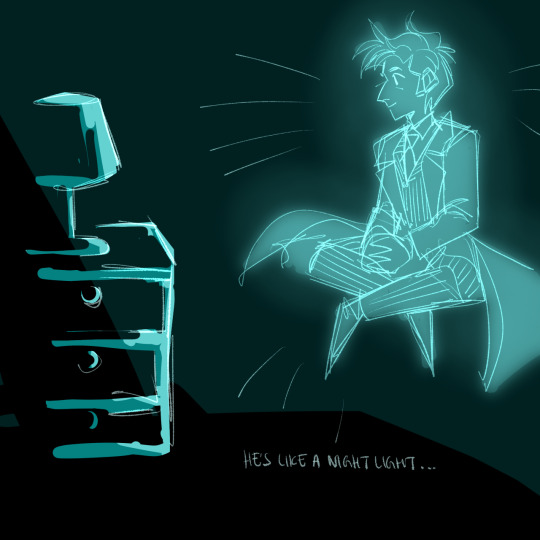
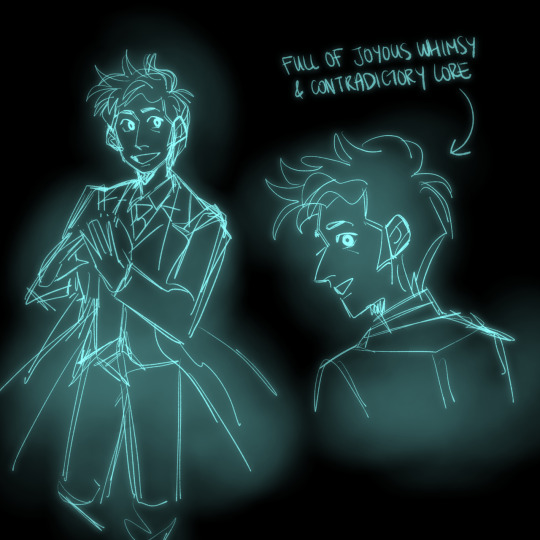
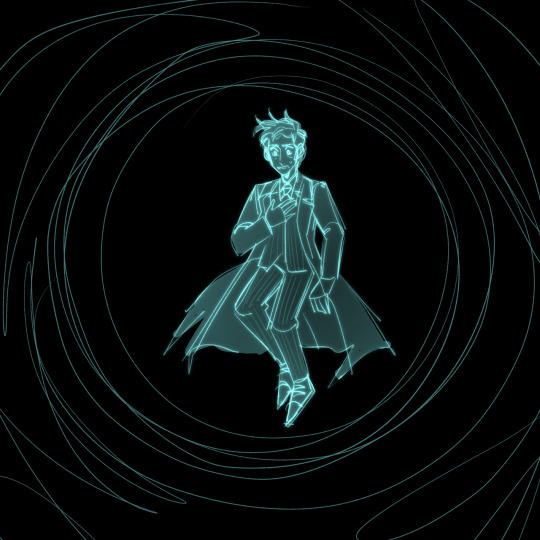
he glows like a glowstick btw
#id in alt text#my art#dw#doctor who#tenth doctor#contemplating the crushing loneliness of your half-existence all by yourself buddy?#cw eyestrain#dr who ghost au#<- LOOK HERE FOR CONTEXT!!#yeah theres like at least half a dozen different origin stories for this au floating around in my head. theyre all equally valid <3
264 notes
·
View notes
Text
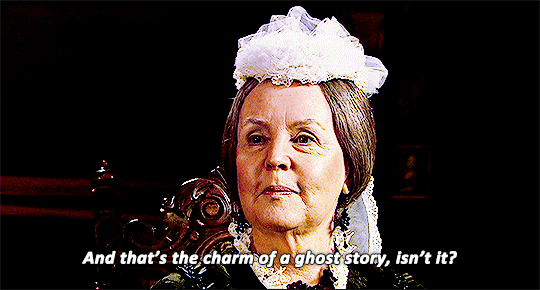
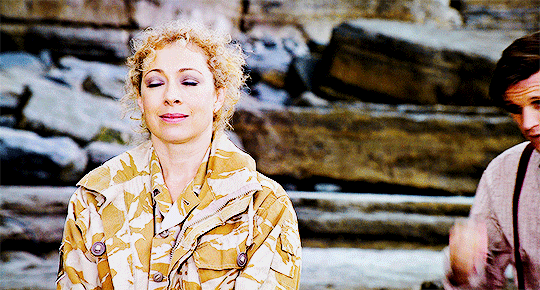
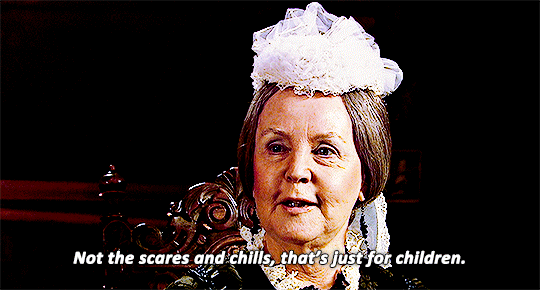
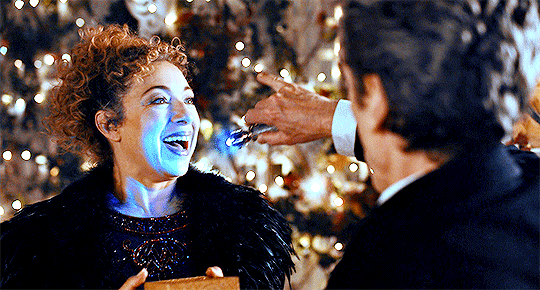
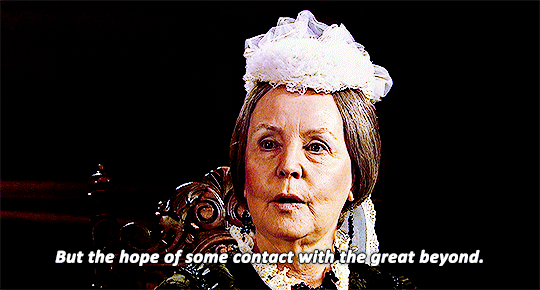
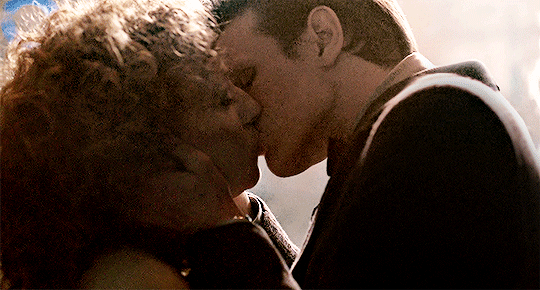
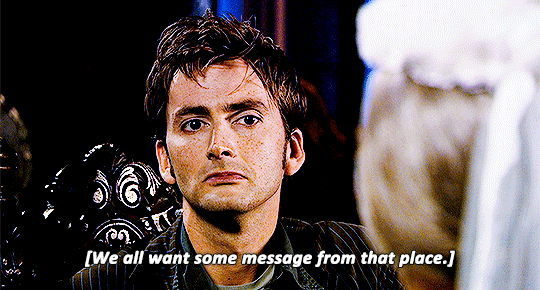
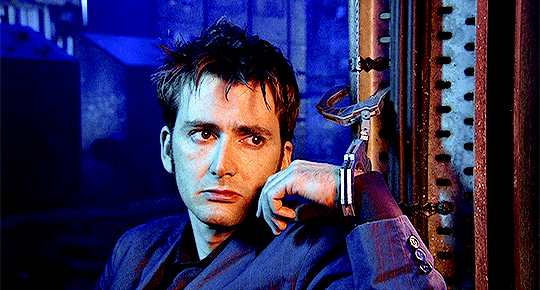
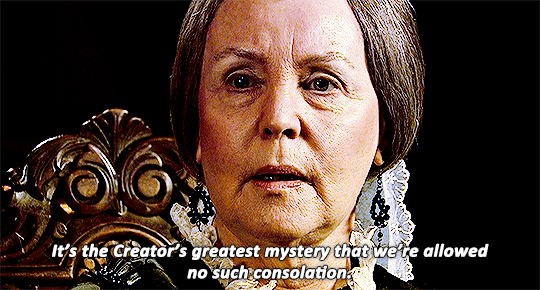
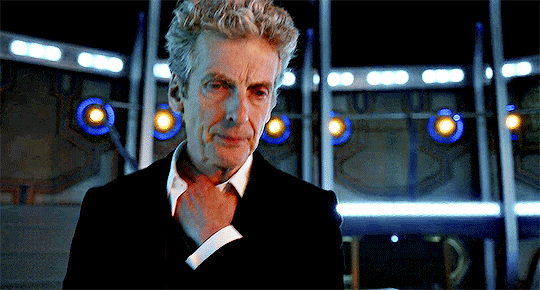
The dead stay silent...and we must wait.
#dwedit#doctor who#moffatedit#rtedit#tvedit#timelordgifs#dwgifs#dwgif#scifigifs#scifiedit#userbbelcher#romancegifs#otpsource#river song#tenth doctor#twelfth doctor#eleventh doctor#doctorriver#long post#😭😭😭😭😭😭#i was watching this scene the other day#and i had to get this gifset out so i could stop crying over the parallels#bc that's what they are#they've always been a story about a man who fell in love with a ghost#10 said every time he saw river the pain of her death intensified#and the shadow of her death loomed over him#still the doctor falls in love and marries her; his beautiful mesmerizing ghost#and can we pls talk about 11 literally making out with her data ghost?? and reaffirming his CONTINUAL love for her; I just...😭😭😭#1k
1K notes
·
View notes
Text









WHY CAN'T I BE LIKE YOU? the iliad, emily wilson. s8e13 + s9e10, doctor who.
#twelveclara#wwtdd#the iliad#emily wilson#doctor who#moffat era#whouffaldi#doctor who as tragedy#girlmartyr#this isn’t a ghost story; it’s a love story#mine
372 notes
·
View notes
Text
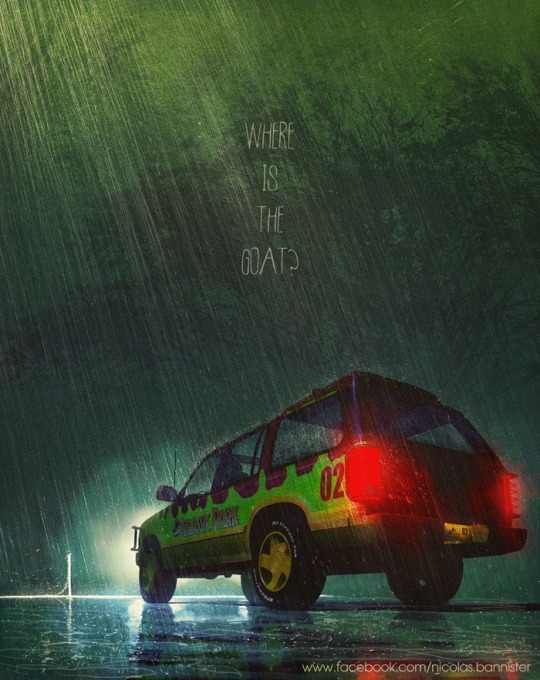
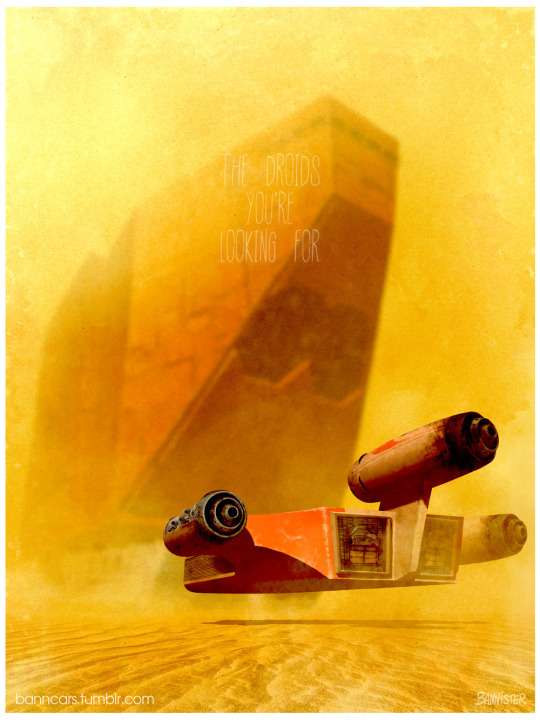
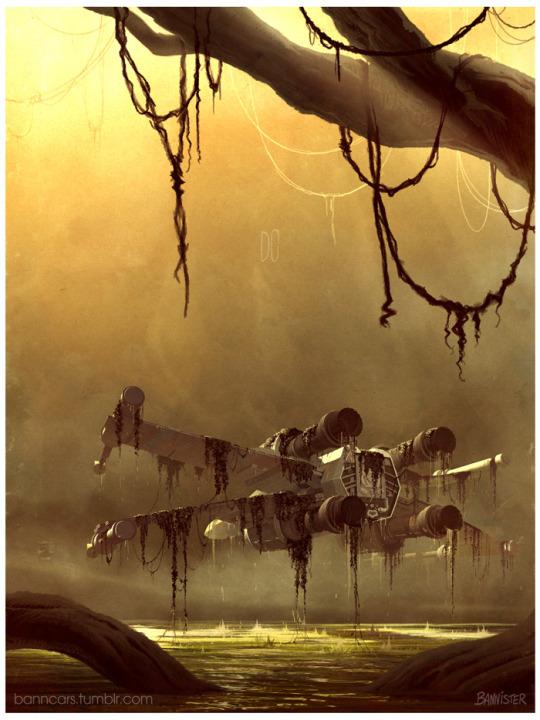



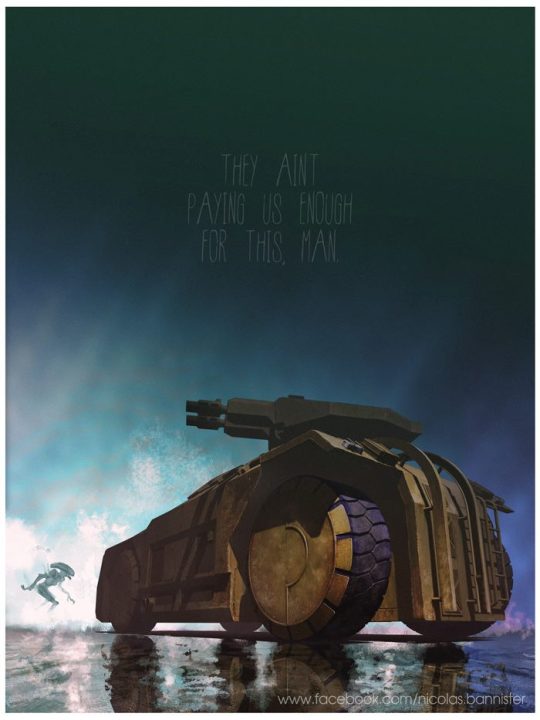
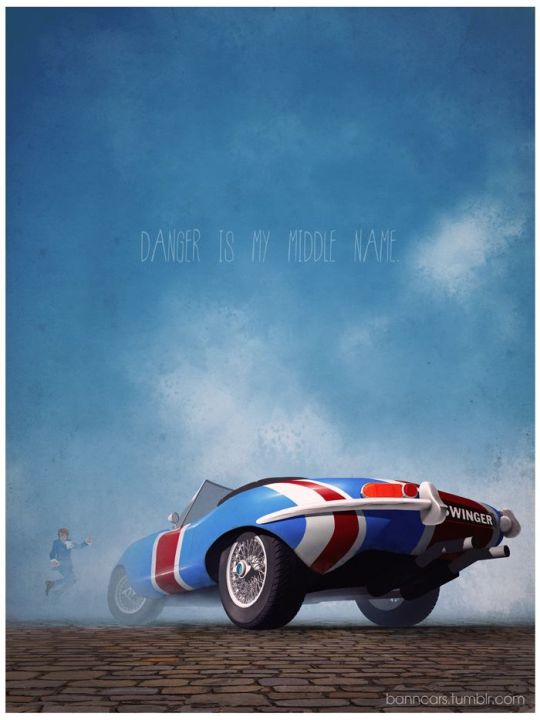
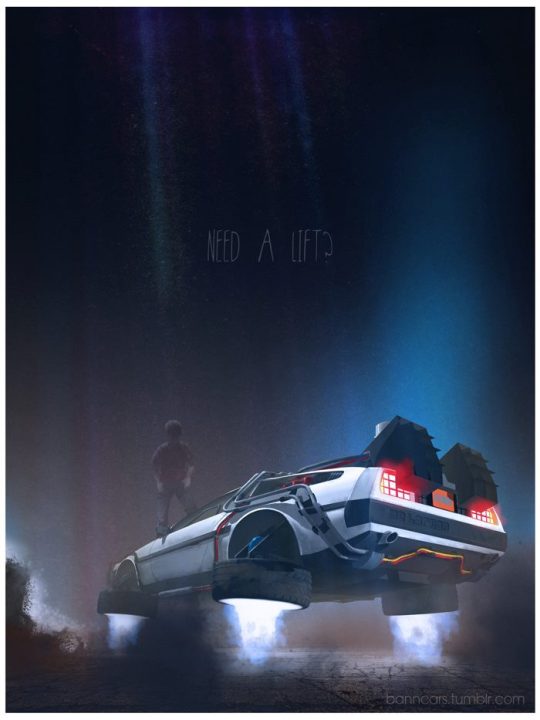


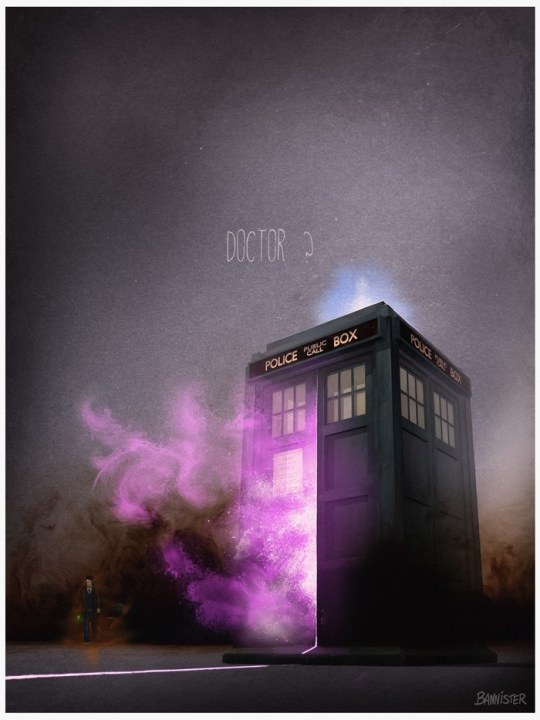

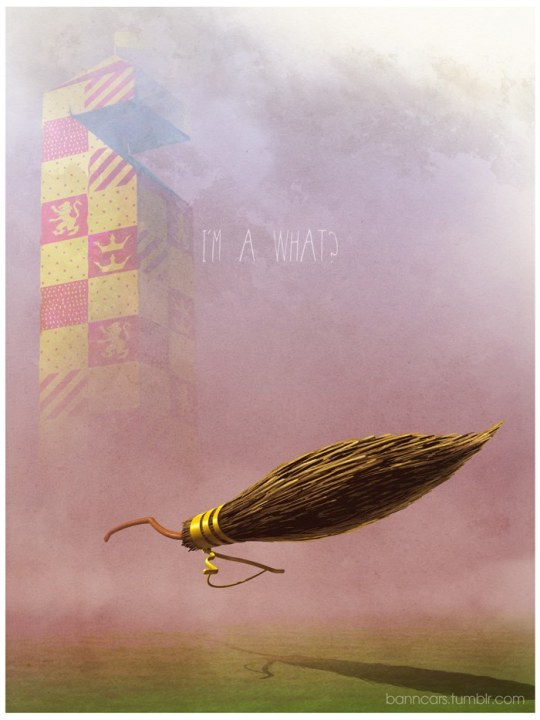
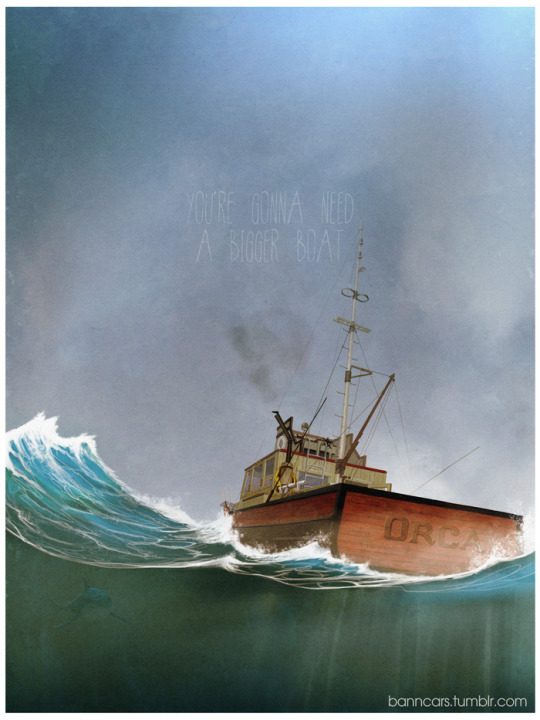
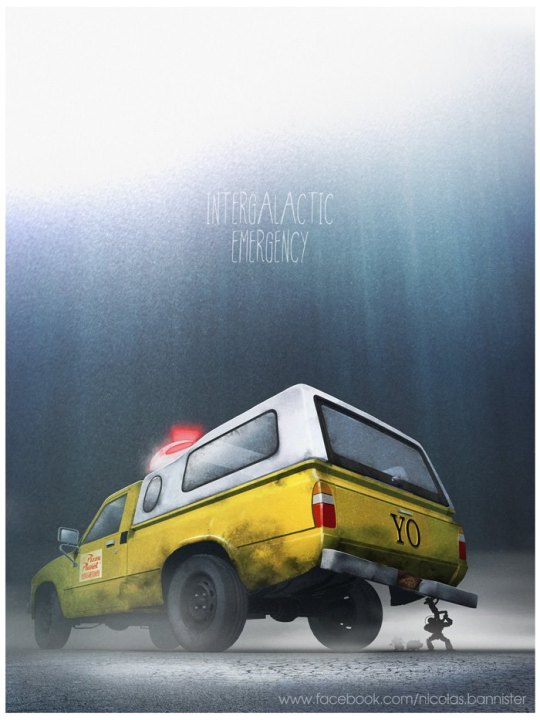
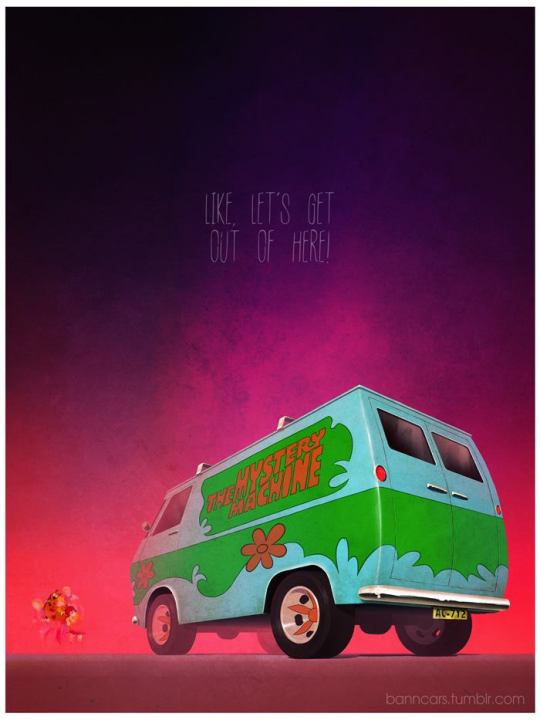
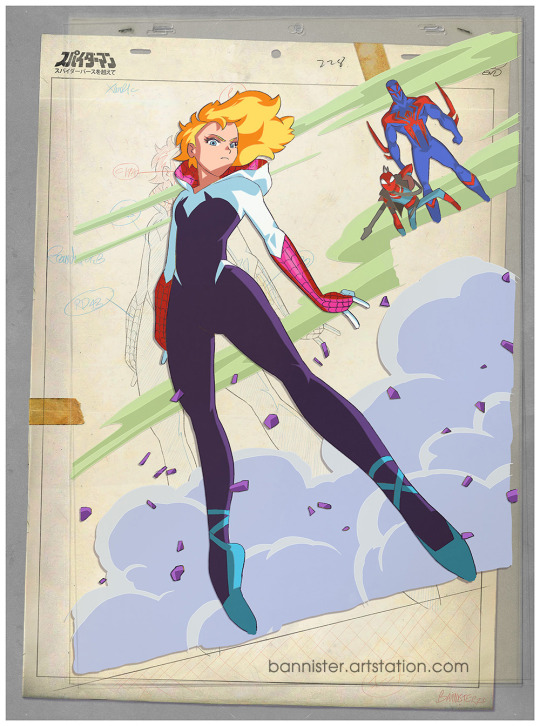
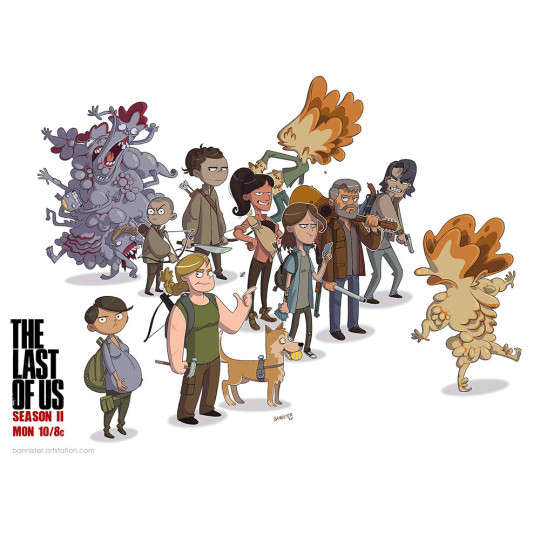

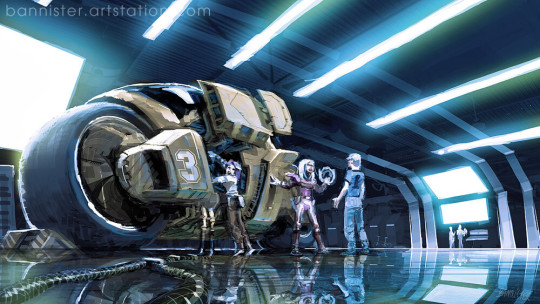
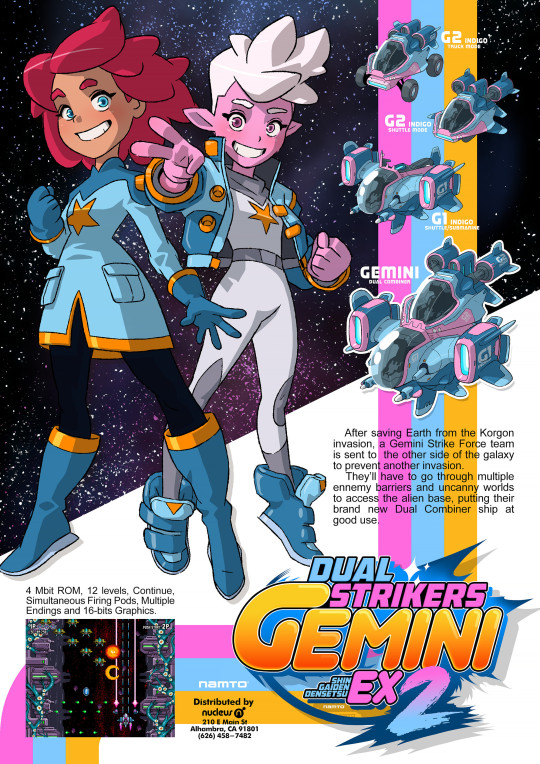
Showcasing art from some of my favourite artists, and those that have attracted my attention, in the field of visual arts, including vintage; pulp; pop culture; books and comics; concert posters; fantastical and imaginative realism; classical; contemporary; new contemporary; pop surrealism; conceptual and illustration.
The art of Nicolas Bannister.
#Art#Nicolas Bannister#BannCars#Jurassic Park#Back To The Future#Akira#Alien#Austin Powers#Breaking Bad#Doctor Who#Ghostbusters#Harry Potter#Jaws#Toy Story#Scooby Doo#Ghost Rider#SpiderGwen#The Last Of Us#Concept Art
306 notes
·
View notes
Text
You know what really gets me about Eleven’s run? Is that it starts off with an amazing thesis statement in the Beast Below which I think sums up the Doctor as a character more than any other line ever has. "What if you were really old, and really kind, and the last of your kind?...All of that pain and misery and loneliness, and it just made it kind."
Yes, sometimes the Doctor needs to be reminded of that fact, as when Amy has Liz 10 hit the abdication button, but the Doctor is kind. He is the man that cheered that "just this once, everyone lives" and was a "coward not killer anyday" and flung away a gun and even after the Time Lord Victorious arc, died to save a single man from dying from radiation. The Doctor and his companions bring out the worst in each other, yes, but they also bring out the best.
And then comes along The Girl Who Waited and the God Complex, which are just an extension of Let's Kill Hitler and eventually Angels Take Manhattan, which are all about how the Doctor takes people as companions because he needs someone to worship him, that he can't bear to see them age and would rather see them young and beautiful, that he is vain, that he is cruel, that he is a god, and I get that interpretation but at the end of the day, the Doctor has never been about vanity or worship or needing someone to keep him in check.
Because yes, companions have reminded him the importance of being kind as part of what is "necessary." The importance of having hope. But it's just that: a reminder. The Doctor is unlike the Master and unlike the rest of the Time Lords because he is compassionate. Because he hates to see children cry. Because he is a coward who is nonetheless brave enough to keep caring, over and over again, no matter how many people die in front of him, no matter how many times he loses those he loves, because the Doctor is a love story as much as it is a ghost story at the end of the day.
And it kills me that the main themes/character arcs of Eleven’s era boil down the Doctor to someone who is not that. Someone who, as the Power of Three ending/Angels Take Manhattan imply, had to have the Ponds to keep him in check. That he could not let them go, could not respect them and their choices like Ten did with Martha. That an entire religion formed itself, kidnapping a child and making her into an assassin, just to stop him from ruining the universe, because he is a god more than a man. That he is a god just like the minotaur, feeding off of people's faith in him, taking children and companions so that he can be nourished, so that he can feel important.
Because even at the Doctor's worst in the Time Lord Victorious Arc, it has never been about worship. It was about grief and loss and love and compassion, because the Doctor has two hearts because he has too much love to fill just one, because that is the kind of person that the Doctor is.
All of that pain and misery and loneliness, and it just made him kind.
#eleventh doctor#angels take manhattan#god complex#the power of three#amy pond#meta#tenth doctor#ninth doctor#doctor who#Doctor Who has always been my franchise of choice because it is about KINDNESS#this is a ghost story and it is a love story#about a lonely man (or woman) who loves too much that they are always condemned to pick up more ghosts#and they carry those ghosts forever#but being haunted makes them kind#the fear keeps them kind#river song#the beast below#you know i think the beast below might be the best amy & eleven episode there is
97 notes
·
View notes
Text
i have a maybe lukewarm maybe hot take about this godforsaken show that some people could find mean, but i stand behind it, no elaboration (okay, some elaboration in the tags below… a lot of elaboration)
opinion: if you claim to like clara’s dynamic with the doctor and her character development in series 8 and 9, but simultaneously say you hate the impossible girl arc/elevenclara, you don’t actually understand anything about their relationship and what makes it the way that it is
#elaboration: it’s about the parallels. it’s about clara being the object of a mystery; the subject of a story VS writing her own story from#the name of the doctor onwards: refusing to become a puzzle box but taking it a step further and seeking to become the author of the#puzzles. it’s about her being chosen by missy all that time ago; because she was; among everything else; an avatar/projection of her#complicated feelings for the doctor in a way. a proxy that doesn’t know they’re a proxy#it’s about the mirroring of the impossible girl arc and heaven sent/hell bent! clara choosing of her own free will to splinter her identity#into millions upon millions of shards; dying over and over in every reality to save the doctor. compare to: the doctor choosing to spend#millions upon millions of years killing himself; dying over and over for the chance to save his clara.#the intertwined devotion! the complexity of their codependency! none of that would have developed the way it had if not for#clara being eleven’s impossible girl. she had to be a ghost story before she became a love story; and aren’t those two one in the same; as#stated in hide?#clara oswald#the impossible girl#twelveclara#whouffle#whouffaldi#doctor who#dw#peter capaldi#matt smith#jenna coleman#twelfth doctor#twelve#eleventh doctor#eleven#jamie catches up#jamie.txt#elevenclara
137 notes
·
View notes
Text
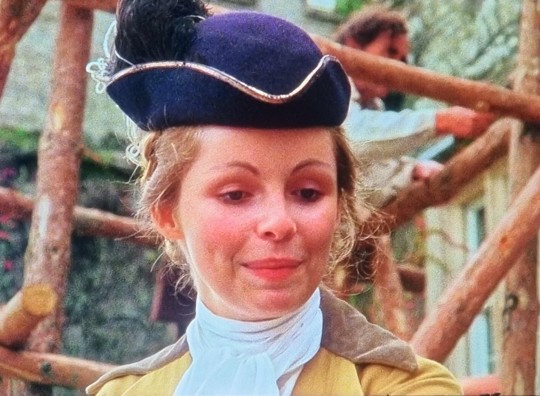
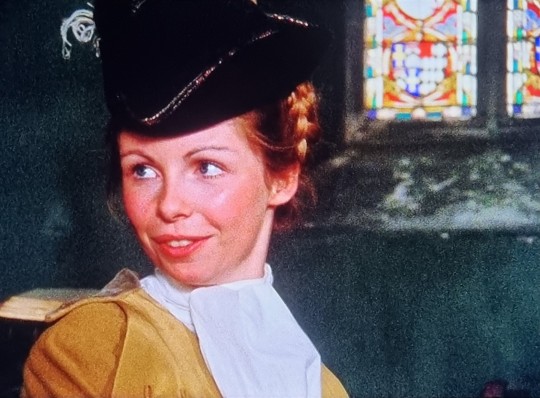
Lalla Ward makes a brief appearance as Lady Augusta, intended bride to an ill-fated aristocrat, in A Ghost Story for Christmas: The Ash Tree (BBC, 1975)
#fave spotting#lalla ward#doctor who#a ghost story for christmas#the ash tree#1975#romana#romana ii#spoilers for the ash tree ig????#i mean it's pretty obvious from the outset that Ed Petherbridge's aristo is not in for a good time#i mean he's a Jamesian protagonist for one thing....#lalla had been acting since the beginning of the decade‚ with a fair number of one off appearances on tv and the odd film to her name#(most notably Hammer's Vampire Circus). she was still a few years off DW and genre immortality at this point#it isn't the most rewarding role; James (who i don't think many would argue that he wasn't a bit of a chauvinist) rarely featured#significant women characters in his work (a large number of them being academical in setting didn't help). actually the ash tree#is something of an outlier in that regard‚ as it does feature a significant female character in Mrs. Mothersole‚ but we can hardly consider#her a positive feminine presence... actually one of Lawrence Gordon Clark's regrets about this particular entry in the Ghost Story for#Christmas canon is the failure of him and writer David Rudkin to make a true villain of Mothersile; Clark felt that their shared sympathies#for the historical victims of witchhunting prevented them from capturing the 'evil' of the character (tho it's debatable how much James#himself intended her to be truly evil; this is just Clark's opinion after all‚ and fwiw i think Rudkin's greater complexity of the#character is more interesting‚ more believable and more appropriate)#i rambled. anyway yes‚ not a meaty role perhaps‚ but Lalla sinks her teeth in all the same and in just a few brief scenes successfully#creates a vivid and fully realised character‚ a charming and flirtatious fiancée with something of a rebellious streak#no ash tree post bc i made one the last time i watched it a couple of years ago
79 notes
·
View notes
Text







Twelfth Doctor & Clara Oswald + Orpheus & Eurydice
+ Bonus

#doctor who#twelfth doctor#clara oswald#whouffaldi#twelveclara#otp: this isn’t a ghost story#otp: it’s a love story#otp: the control freak and the man who could never be controlled#orpheus and eurydice
280 notes
·
View notes
Text


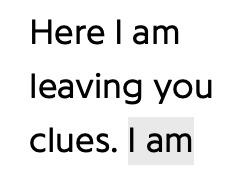










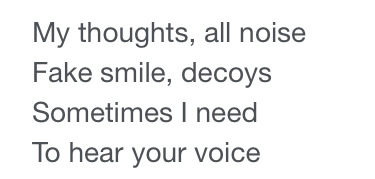
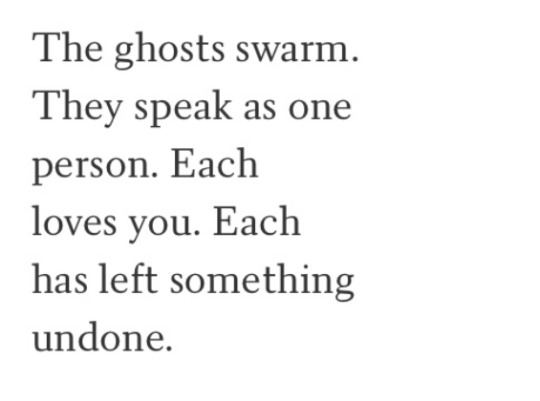


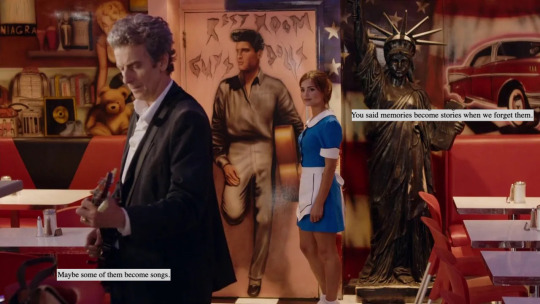
Clara Oswald, or, a ghost story
The Snowmen, Doctor Who // Interstellar (2014) // Snow and Dirty Rain, Richard Siken // Hide, Doctor Who // ‘As Strong As Death’ published in ‘Eight Ghosts: The English Heritage Book of New Ghost Stories,’ Jeanette Winterson // ghost I, Christina Marie Brown // Hide, Doctor Who // Danse Macabre, Steven King // Hide, Doctor Who // Landscapes with Fruit Rot and Millipede, Richard Siken // Death in Heaven, Doctor Who // Ghostland: An American History in Haunted Places, Colin Dickey // Interstellar (2014) // Black Hole, boygenius // Unbidden, Rae Armantrout // “A Ghost Is a Memory.” On Bodies, Belief, and the Places Ghost Stories Live, Genna Rose Nethercott // Faces in the Crowd, Valeria Luiselli // Hell Bent, Doctor Who
#she doesn’t believe in ghosts but she is one! she’s been haunting herself from the beginning!#im insane and unhinged and feeling soooo unwell after spending all day watching doctor who#but it’s my last healthy coping mechanism so you all have to suffer now#clara oswald#she’s a ghost story! she’s haunted! she’s haunting!#doctor who#web weaving#< if you can call it that#twelveclara#twelfth doctor#ghosts#ghost stories
88 notes
·
View notes
Text
Amy Pond canon-compliant character study (I will rip your heart out just like I did mine)
You are Amy Pond and your best friend is a man who tumbled into your life when you were a child and turned you into the town’s Cassandra, doomed to never be believed, doomed to believe without salvation, and yet your faith in has never wavered, because what would you be without him? You don't remember existing in a world without your god.
You are Amy Pond and you are kind and you have faith until that faith is forcefully broken to save your life. You become Lucy Pevensie, cast out of your kingdom by the only god you have ever believed in, so you choose to build your own kingdom, to make a life out of the wreckage that he left behind.
But that is not enough. It will never be enough. You are not allowed to leave this story. You are not allowed to grow up in a way that matters, because every time you try to choose, every time that you try to build a life of your own, you are dragged back into this story.
You are Amy Pond and this is a horror story, a tragedy, because you were never allowed to make a choice unless that choice is to die. You are not allowed to choose unless it is to kill yourself. You die on Appalappachia. You die in Manhattan. Any time you get to make a decision, death is there, hand outstretched, ready to walk you off the stage.
You are Amy Pond and you are a ghost haunting other people's stories.
You are Amy Pond and you died before you were born.
You are Amy Pond and you are kind even though the world was never kind to you and maybe, just maybe, this would have been a kinder story if you hadn't believed. If you hadn't held faith. If you had let the memory of your imaginary friend slide away.
The world might have ended earlier. The universe might have been worse off. But would you have? Would you have been happier?
The answer doesn't matter in the end. It never did.
Because there's nothing you can do. No other way this story ends.
You are Amy Pond and you do not get to leave. You do not get to change your story.
You are Amy Pond and you are Amelia Williams and you are Amelia Pond and your story ends as it began: with a girl sitting in a garden, waiting for a man to pick you up and take you to your death.
(Amy Pond and being trapped within the narrative: aka, the question of narrative framing and the consequences of faith.)
Full version of the poem(? Character study?) here:
@twelvesbian @tenmartha @variousqueerthings @spoofymcgee
(Tagging people whose analysises inspired this)
#i did the thing#canon Amy is a fairytale with no happy ending#a story that rips her agency away from her at all times#she only ever gets to choose to die#(well in Season 6 and 7a at least)#come be ruined with me#aletterinthenameofsanity#my fics#fanfic#ao3#doctor who#eleventh doctor#amy pond#rory williams#river song#it's a story about a girl who is a ghost and cassandra and sleeping beauty and persephone all at once#mentions of suicide#dark#meta
48 notes
·
View notes
Text
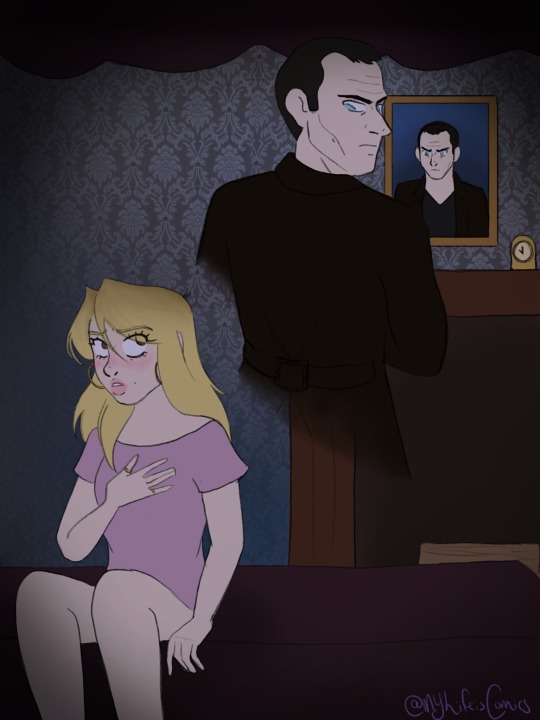
The Ghost and Miss Tyler
Don’t ask me why this came to me earlier today but I had to make it. I love this book and film and I feel there is a real lacking of ghost love stories lol! Anyway- how fitting would that be as a ninerose au?! I should do that some day… haha.
#nine x rose#so I recall a fanfiction years ago that reminded me of this story#I doubt I could ever find it again but it was awesome and had a way better ending than The Ghost n Mrs Muir#ninth doctor#rose Tyler#the ghost and mrs. muir#that’s the original book/film for anyone who’s interested and hasn’t seen yet
61 notes
·
View notes